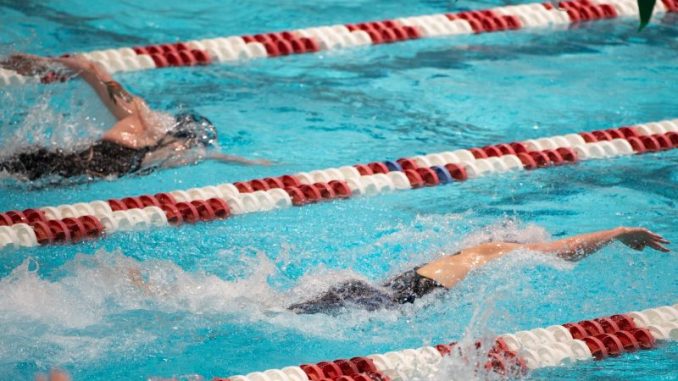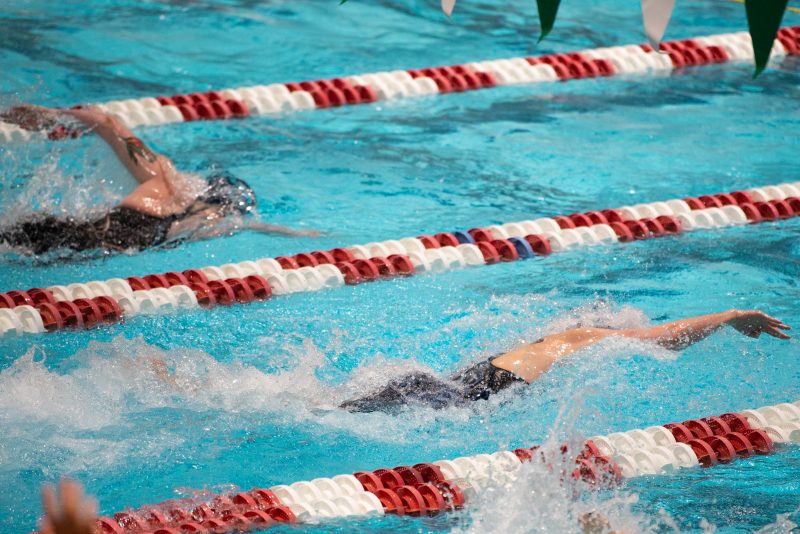

OAN’s Elizabeth Volberding
3:25 PM – Thursday, October 5, 2023
A group of elite female swimmers on the Roanoke College swim team in Virginia have demanded immediate action to secure their spots after a transgender student joined their team, making them feel “demoralized” as they accept their new competitor who had previously competed for the men’s team.
Advertisement
The Virginia college’s swim team claims that they feel “cheated” and “abandoned” at having to welcome their new teammate. They have been demanding urgent action to protect their spots on the team as the coaches and athletes are “demoralized,” angry, and unsure how to cope with the situation.
On Thursday, the other swim team members spoke out during a press conference. They were backed by the Independent Women’s Forum and Independent Council on Women’s Sports (ICONS) throughout the conference.
ICONS strive to represent female athletes and coaches, and promote legislation to protect women’s sports. They also lobby the governing bodies of sport to establish guidelines.
The captains explained in the conference that the transgender student told the staff at Roanoke College that she wished to swim on the women’s team, after sitting out during the previous season while transitioning. However, the swimmer had competed on the men’s team the year prior.
The captains of the sophomore, junior, and senior squads, Kate Pearson, 19, Lily Mullens, 20, and Bailey Gallagher, 21, have mentioned that the situation has torn the team apart as they felt abandoned by their university and the Nation Collegiate Athletic Organization (NCAA).
Gallagher and Mullens stated that they both had knowledge of the trans swimmer, who has not been identified, before her transition.
“I never expected to be blindsided by a teammate from the men’s team who now wanted to compete against me and my fellow swimmers and shatter our records,” Gallagher said, highlighting she was supportive of the trans swimmer’s transition.
According to one of the captains, Mullens, the entire women’s swim team was surprised and confused when their coach informed them of the news.
“Why even try to swim when racing against a biological male?” Mullens asked. “Our defeat was written in biology.”
“We were all motivated to win this year after coming in second last year, and all that motivation disappeared when we discovered that a biological male would be joining the women’s team,” she added.
The three team captains orchestrated a meeting with the rest of the swimmers. They all came to the agreement that they were not in favor of the trans teammate competing with them.
However, they felt stressed and overwhelmed being told that they had to approach the trans swimmer themselves and make their case. As a result, the trans swimmer responded to them explaining that she felt “suicidal” because of the team’s efforts to remove her and was desperate to be included.
The captains explained that they were shocked at how the university left the decision up to them to decide how to manage the situation
“There’s so many ‘grown ups’ around that should be making these decisions,” said Pearson. “That’s part of their job. It was just a hot mess – I was like, what is happening. We kept getting put in these situations, and it was so stressful, and every single night we were discussing this through, discussing that.
“I was going to bed at 3am just thinking about it, thinking what could happen, what couldn’t happen, constantly stressed, crying just all the time. Every single day. We just could not get a break from it – and we have studies. There’s no blueprint for this, which is also why we want to stand up and get our voices heard,” she added.
However, Roanoke College made a statement to DailyMail.com that they never came to an agreement about permitting the trans swimmer to participate in the women’s team.
“This fall a Roanoke College student who identifies as trans (male to female) requested consideration to join and compete with the women’s swim team,” a spokesperson said. “While the College’s leadership was reviewing NCAA and national sport policies on eligibility, the student withdrew her request before any decision had been made.”
Under NCAA requirements, a person must finish 12 months of testosterone suppression treatments and submit serum testosterone level tests displaying levels below the maximum for the particular sport.
Stay informed! Receive breaking news blasts directly to your inbox for free. Subscribe here. https://www.oann.com/alerts
Advertisement

